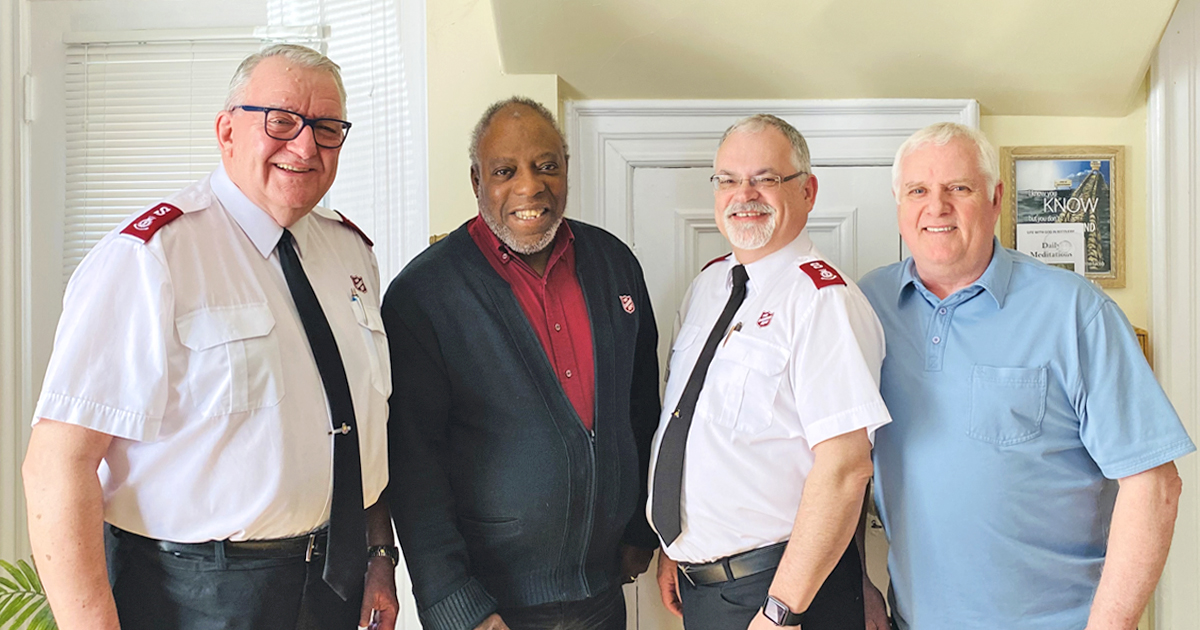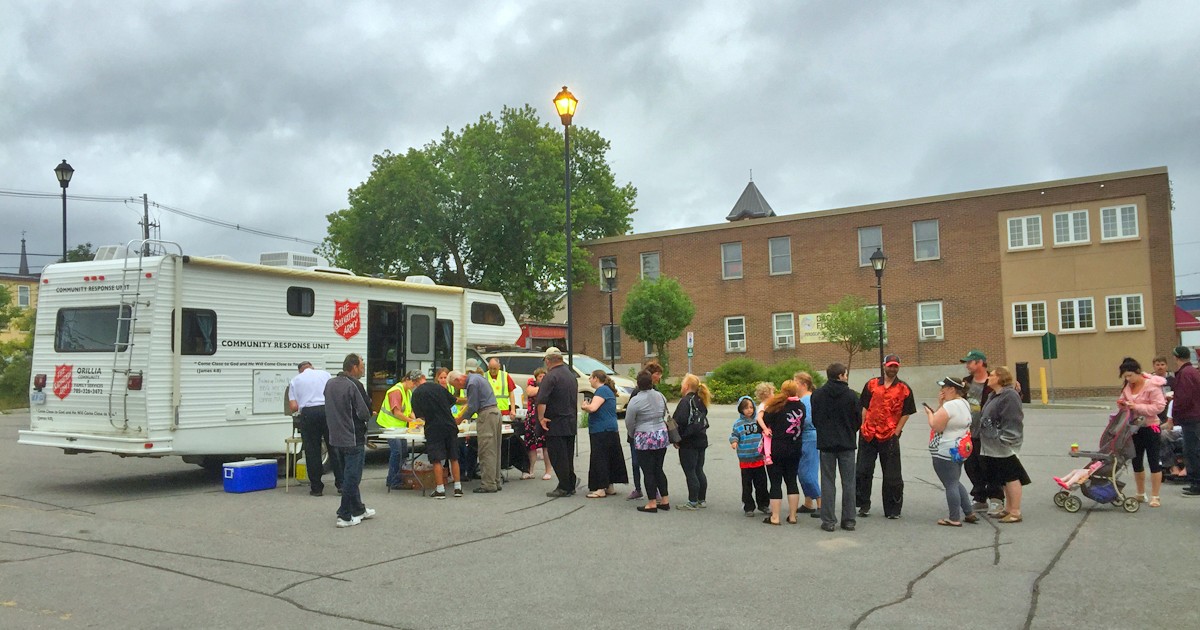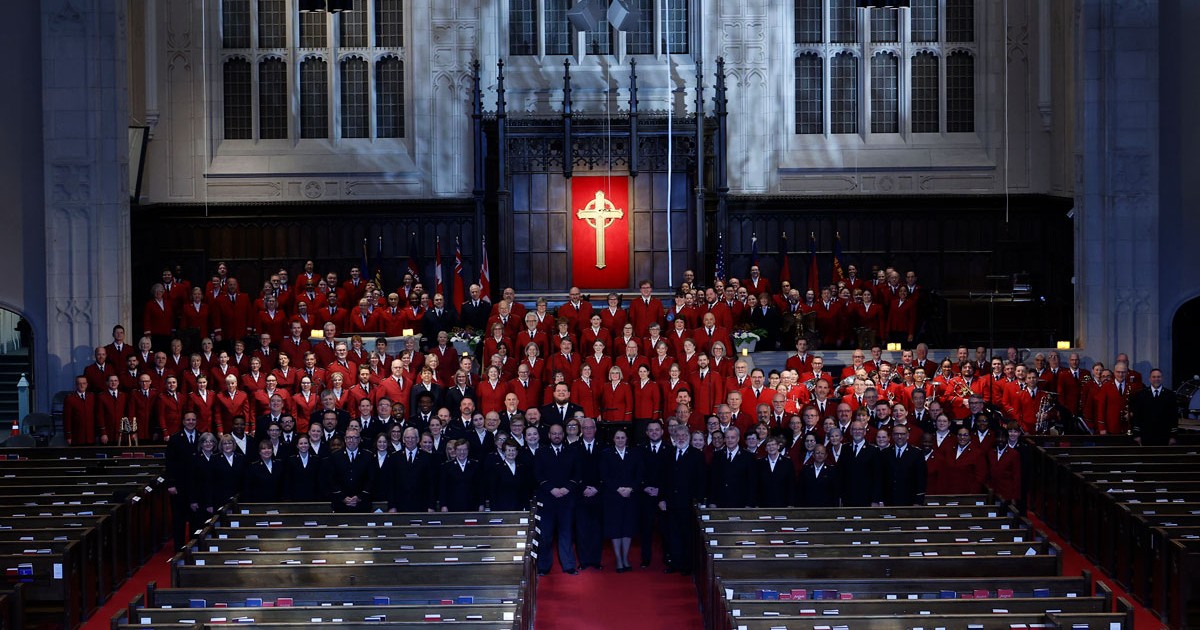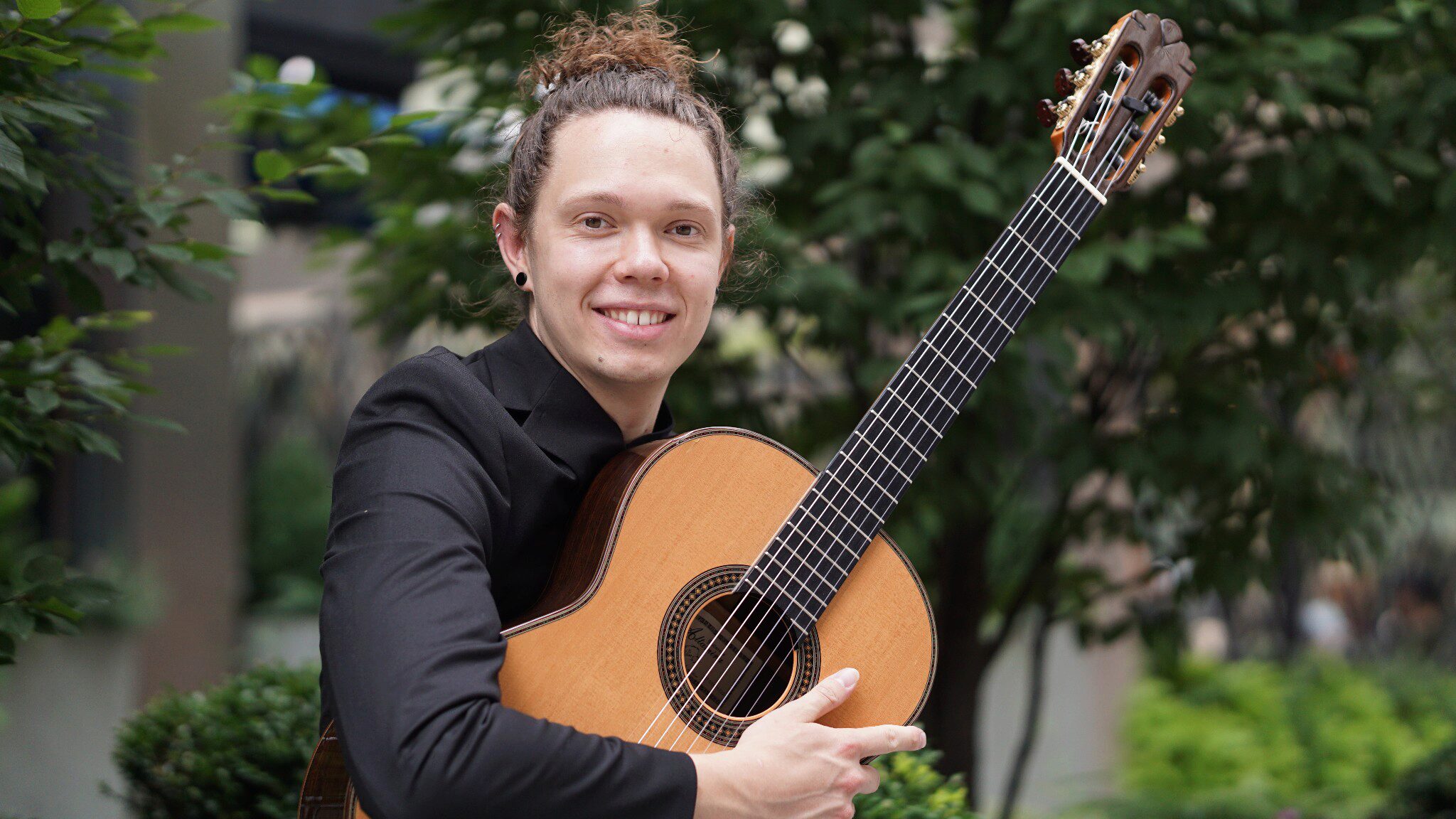(Above) From left, Mjr Leigh Ryan; Vince Farrell, chaplain; Mjr Wayne Durdle, chaplain; and Mike Gillespie run the Breaking Free program at Greenfield House
Recovery requires more than just short-term intervention. At The Salvation Army’s Greenfield House in Moncton, N.B., recovery means connection.
Greenfield House, a residential facility providing accommodation for conditionally released offenders, serves 25 offenders at any time, from a few days to a few years, depending on the needs of the individual. They offer programs that aid in positive community reintegration by focusing first on individual healing and support. Positive Lifestyles, a nine-week program offered inside local correctional institutions, focuses on topics such as addiction, anger management and self-esteem. Its sister program, Community Readiness, provides personal guidance and helps offenders set goals and build confidence.
Research shows that most offenders in federal correctional institutions face struggles with addiction to substances, negative behaviours and relationships. The most effective recovery strategy is not abstinence, but meaningful connection—with the community, family, self and God. For many offenders in the Moncton criminal justice system, Greenfield House is at the heart of this connection.
“We’re the halfway step for offenders from federal institutions who are on their way back to the community,” says Major Leigh Ryan, executive director of correctional and justice services in Moncton. “We help them work through a variety of issues to hopefully get ahead.”
But COVID-19 caused greater isolation for offenders who already lacked vital support systems and amplified the need for connection. When The Salvation Army announced available funding for innovation grants in 2021, the team at Greenfield House knew there was an opportunity to meet this growing need. They proposed the “Breaking Free Connection Ministry,” an innovative project that would help further their mission and make Greenfield House a connecting point where offenders can find practical, emotional and spiritual support for lasting success.
Their proposal for funding of $25,000 was approved to launch Breaking Free as a three-part project that will help encourage and motivate clients in their journey of life recovery.
Recovering Life
The Breaking Free project is spearheaded by Major Ryan, Mike Gillespie, program facilitator at Greenfield House, on-site chaplains and a group of volunteers. “Prior to COVID, we had some ideas about what we wanted to be doing in addition to our current programs,” says Major Ryan. Due to local pandemic restrictions, many programs were unable to run inside institutions. “Then came this innovation grant. We had these ideas and now we can act on them.”
Breaking Free goes beyond substance addiction recovery, focusing instead on “life recovery.” Though it is designed to help offenders battling substance, behavioural and relationship addictions, it is rooted in the biblical truth that everybody needs help with sin in all forms. Everybody can seek freedom from sin.
Now, more than ever, offenders need the connection that Greenfield House provides and plans to enhance through Breaking Free—to help those who need it, however they need it.“We’re really excited about it,” says Major Ryan. “It’s where we want to go.”
Building Connections
Greenfield House identifies three parts of their project: Breaking Free connection chapels, a “coffee shop” and Breaking Free group.
“The connection chapels are a different kind of chapel aimed at connecting with offenders in a new way,” explains Major Ryan. The connection chapels, which take place biweekly at two federal institutions in Moncton, focus on life recovery and encourage participation and interaction with ministry.
The weekly coffee shop, hosted at Greenfield House, is a time for fellowship between current and former residents of Greenfield House who come together for conversation over coffee and homemade treats.
The project also involves the rebranding of Greenfield House’s “Living the Life” program, which had successfully operated for eight years and will now include new life recovery content. The newly renamed “Breaking Free group” will include current and former residents of Greenfield House, other clients from the community and members of Moncton Citadel Community Church.
Breaking Free is intended to have immediate as well as long-term impacts on both the individual offender and the community. For the offender, the connection points that Breaking Free can offer will build a larger support system to encourage them along every step of their life recovery, nurturing their emotional and spiritual needs and showing them how God can work in their lives. It demonstrates in practical, discernable ways, that there are people around them who care and want to see them succeed.
This long-term, continual support and connection to a wider community can lower recidivism, increase public safety and change the trajectory of an offender’s life.
“So far, we’ve got 20 members who come to the program at different times. There’s a lot of excitement inside the institution among the chaplains and some of the offenders who know we’re coming,” says Major Ryan, who has led the implementation of the Breaking Free support group and looks forward to starting the connection chapels and coffee shop when restrictions allow. “We’ve walked alongside people with some serious life struggles. We’ve had good results from what we’ve been able to do so far and we’re all very thankful for that.”
To learn more about the territory’s innovation grant program and the ministries it supports, click here.










Comment
On Saturday, June 25, 2022, Eric O'Blenis said:
Leave a Comment